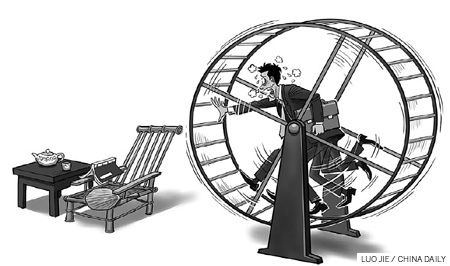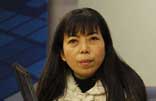Making tea to make a world of difference
Updated: 2011-04-08 08:03
By Berlin Fang (China Daily)
|
|||||||||||
In business, for instance, Yin tries to teach the idea that even high performers can fail if they do not develop affinity with other elements in the work environment, just as one can produce average tea from top-class tea leaves if, for instance, the water or the teapot is not the best for making such tea. He wants his employees to develop synergy with the products, the business platform, the customers, and most importantly, with each other as members of the same team, like leaves in the same pot.
Yin inadvertently uses tea-making to teach activity theory, produced by psychologist Lev SemyonovichVygotsky in the former Soviet Union, further developed in Sweden and widely used in the US, especially in my line of work, educational technology. The theory sees human activities as being complex, socially situated and mediated with the use of particular tools.
Making tea is a changing rather than static activity. We are not talking about adding X amount of A and Y amount of B to produce Z amount of C. The fascinating part is that such elements work on one another in a constant mode of interaction. The change of one element will bring about changes in the entire system to affect the results we set out to achieve. The activity is social, dynamic, and subject to conditions of the people, the tools and the materials we have. The process is so complex that it is more of an art than science. As an art, it defies a formula or a secret recipe.
But if you have read this far, you probably find this elaboration on a theory to be boring. An ounce of story is worth a ton of theories. China has a past full of such stories pregnant with implications for management, especially in the Asian environment. "I do not understand why nobody is paying attention to any of these any more," Yin complained. As Chinese students swarm to learn management theories from developed countries, as if only they hold the secret keys to the inner chambers of management, such teapot stories are forgotten, ignored or dismissed as irrelevant.
Fortunately we still have a few eccentric people like Yin and this author who are willing to learn and retell such stories. In Chinese, there is a proverb, "A teapot is a world". And making good tea can make a world of difference.
The author is an English-Chinese literary translator and instructional designer based in the US.

(China Daily 04/08/2011 page9)




